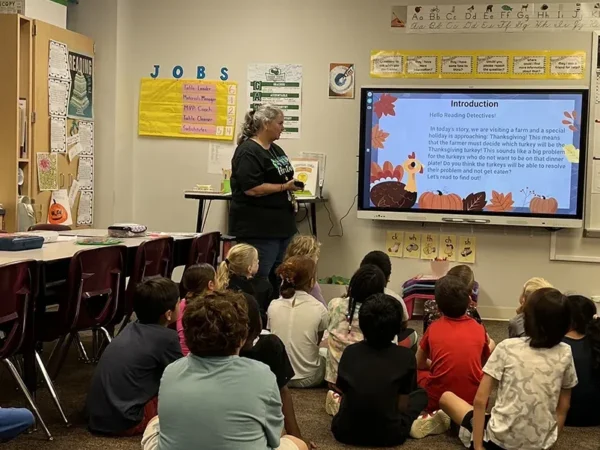Improving Content Area Reading Comprehension
DR. KAY WIJEKUMAR KNOWS THE SOLUTION TO THE NATION’S LITERACY PROBLEMS STARTS WITH OUR ELEMENTARY STUDENTS.
For over 15 years, she has been developing and researching a program to help children improve their content area reading comprehension performance on standardized tests and writing. Now, as director of the Center for Urban School Partnerships, she is continuing these efforts for English language learners in elementary and middle schools.
“If we don’t get them early enough in elementary and middle school, by the time they get to high school it’s very hard to remediate and get them to have these skills,” explained Dr. Wijekumar. “The sooner we can put them on a very positive academic pathway, the bigger impact we will have on their lives.”
The results of her hard work have illustrated that students who used her program have outperformed other children by over one-half a grade level on standardized tests and a 75% grade level increase on writing main ideas.
In 2000, Dr. Wijekumar began working with a professor at Pennsylvania State University to develop a web-based tutoring system to provide one-on- one instruction to a large number of students. The project, known as the Intelligent Tutoring for the Structure Strategy (ITSS), was designed to improve reading comprehension in STEM fields and social sciences for students in fourth through eighth grade – a time when students are expected to read and process information on their own in every area of the curriculum.
The focus on this age group is important because of what is called the fourth grade slump where students suddenly experience a huge drop in their reading comprehension. Research shows this happens because some students are unable to process, understand, and remember the content area text.
Teaching students to recognize the underlying text structure, or how the information within a written text is organized, can help students focus and monitor their comprehension as they read. For example, it helps them recall key concepts and relationships like the difference between “mass” and “matter.”
“These kids just need a leg up. They don’t have a reading disability; they just need the background knowledge and the ability to read well to gain that knowledge.”
The program features an animated guide that presents modeling, practice, assessment, scaffolding, and feedback to learners. Students learn how to find signaling words – or key concepts – used by the authors, classify the text structure, summarize the text, and then recall the text.
“At the end of the day, if students can put information into their brain in an organized manner, they can take it out and associate it in an organized manner,” explained Dr. Wijekumar.
Reading comprehension is even more of an issue for English language learners. In response to an increase in the number of English language learners in their classrooms, many of the teachers who participated in the project reached out to Dr. Wijekumar and her team for a similar program to specifically help Spanish speaking students succeed. That program is now available.
The program includes two adaptations for English learners: Spanish Scaffolding and English Hybrid. Spanish Scaffolding presents materials in both English and Spanish. English Hybrid gives students the option of getting help in Spanish.
“Our most recent research study shows almost double the effects of what we found with our English speaking students,” said Dr. Wijekumar. “The only place we found a problem was in a couple of schools where the textbook and teachers were giving instruction that contradicted our program.”
Because of those concerns, Dr. Wijekumar and her team have made adjustments to the lessons and types of support for both students and teachers. “We’ve revised our professional development for the teachers so that we know all of the teachers will be on the same page as us.”
More than 900 students in Texas and New Mexico have been involved in the research, and teachers of those students are reporting success across the board.
“There are many teachers who tell us that the kids remember things a whole lot longer, they’re so much better at it and their confidence has gone up,” said Dr. Wijekumar.
About the Writer
To learn more about this article, or for media inquiries contact Ashley Green. Ashley is the Media Relations Coordinator and responsible for news coverage in the Department of Teaching, Learning and Culture as well as the Department of Educational Psychology.
Articles by AshleyFor media inquiries, contact our Media Relations Coordinator, Ashley Green.
Fundraising
To learn more about how you can assist in fundraising, contact Amy Hurley, Director of Development ahurley@txamfoundation.com or 979-847-9455.












